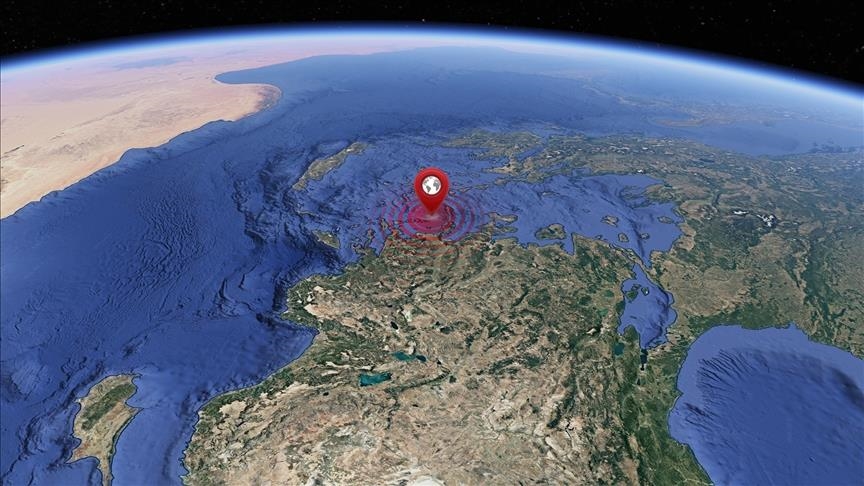UNICEF Türkiye Humanitarian Situation Report No. 20 (Earthquake Response) – Q1 2024 – Türkiye
Highlights
-
In the first quarter of 2024, UNICEF together with government and civil society partners, has reached 31,281 children and caregivers with mental health and psychosocial support, and over 3.4 million women, boys and girls with awareness and information on to prevent and mitigate gender-based violence, including through social media.
-
UNICEF and its partners supported 14,597 individuals, including children and adolescents (7,287 females and 7,310 males), with diverse types of hygiene kits tailored to their specific needs.
-
UNICEF supported 39,181 children with access to formal and non-formal education, including early childhood education; and 2,040 children received education supplies.
-
In total, 23,000 people were reached with NFIs during the reporting period.
-
More than 47,000 children have access to immunization services through UNICEF’s provision of vaccines to the Ministry of Health. Moreover, more than 12,000 children/caregivers received infant and young child feeding counselling sessions through UNICEF-supported mechanisms.
-
As of 31 March 2024, UNICEF received US$ 6.3 million. With carry-over funding of US$ 53.4 million. A funding gap of US$ 56.4 million (49%) against a funding requirement of US$ 116 million remains.
Situation Overview & Humanitarian Needs
The February 2023 earthquakes immediately displaced around 3.3 million people, of which 2 million sought shelter in tents and containers.
One year after the earthquakes, still more than 675,000 individuals are staying in 392 formal container sites in 11 provinces (Kahramanmaraş, Hatay, Adıyaman, Osmaniye, Gaziantep, Şanlıurfa, Malatya, Diyarbakır, Adana, Kilis and Elazığ).
The data on the total number of people living in informal temporary settlements for all affected provinces is still limited.
Access to education has been hampered for nearly 4 million children, including around 390,000 refugee and migrant children in 11 provinces and by damaged infrastructure, financial constraints, language barriers, and the lack of Mental Health and Psychosocial Support (MHPSS), exacerbating challenges for host communities and refugee children, particularly post-earthquake. Limited access to higher education persists due to financial constraints and the lack of scholarships. Among the severely affected provinces, 2,100 school buildings sustained damage: 1,385 slightly, 342 moderately, and 292 severely. In response, the education sector has rehabilitated 641 affected educational facilities by end of year 2023. Plans are underway to rehabilitate 1,076 classrooms, benefiting 125,057 children this year
The findings from the education sector working group assessment describe that 17 percent of sites reported a lack of access to formal primary education in-proximity. The lack of access to face-to-face education was most prevalent in Adıyaman (52 percent) and Kahramanmaraş (31 percent), whereas most of the sites in Malatya (94 percent), Gaziantep (94 percent), and Hatay (85 percent) reported formal primary education available within the site to be sufficient to meet residents’ needs. Efforts have been concentrated on integrating early recovery strategies with the Ministry of National Education, provincial education authorities, municipalities, international and national organizations, and other civil society partners.
In health, access to health services remains to be a challenge. UNICEF continues its support to the Ministry of Health in strengthening the cold chain management system in earthquake affected areas. Although the number of primary health clinics are increasing, data on availability and access to health services remains a challenge.
Children with disabilities report challenges in accessing rehabilitation services and the need for assistive technologies. Monitoring of a young child’s physical growth and development is not yet universally available.
UNICEF supports the Ministry of Health efforts in strengthening primary health care through procurement and capacity building.
There is an increasing need for young child feeding support. Anecdotal data from earthquake area shows the increasing number of children that are malnourished. Fragmented data shows the decreasing trend in exclusive breastfeeding. Partners report on increasing number of children with celiac syndrome, who are in need of a gluten-free diet.
Protracted displacement, overstretched social services and difficult socioeconomic conditions triggered by higher inflation have compounded the vulnerability of affected children and families, posing risks to children’s wellbeing.
Adequate shelter, limited access to water and sanitation facilities, especially hygiene items for women and girls, are major issues in overcrowded settlements. The psychological impact of the earthquakes on children and families remains evident besides the heightened risk of violence, abuse and exploitation.
UNICEF-supported humanitarian assistance will continue throughout the response in 2024 and include service delivery support through mobile, facility and community-based approaches; supplies; and technical support to ensure appropriate age-, gender-, and disability-inclusive services for children and their families/caregivers.



